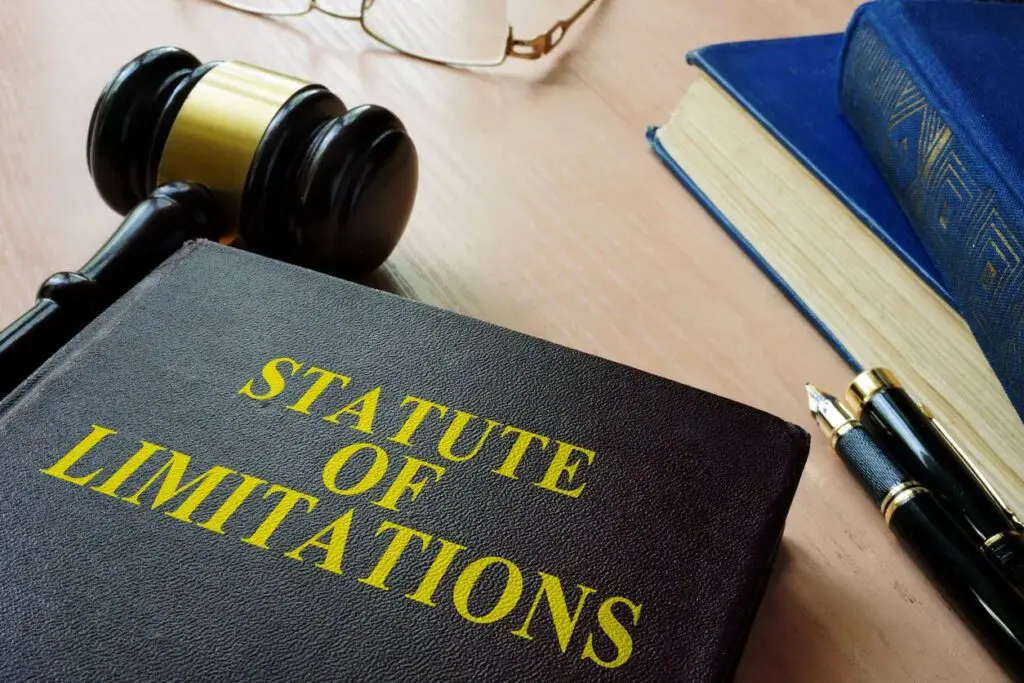In California, the statute of limitations for domestic violence, California, charges sets deadlines for how long prosecutors have to file cases. The statute of limitations for domestic violence in California is currently five years and will extend to seven years starting January 1, 2025.
This five-year statute of limitations applies to both misdemeanor and felony domestic violence offenses, as established by Senate Bill 273, which went into effect on January 1, 2020.
Senate Bill 690, signed into law on September 27, 2024, will extend this period to seven years beginning January 1, 2025. This extension will apply to crimes committed on or after January 1, 2025, as well as to crimes for which the previous statute of limitations had not expired by that date.
Key Takeaways
- California extends the statute of limitations for misdemeanor domestic violence offenses and for felony offenses to five years, allowing victims more time to seek justice. Starting January 1, 2025, Senate Bill 690 will further extend this period to seven years.
- Senate Bill 273 acknowledges coercive control as a form of abuse, providing a five-year statute of limitations for these cases and enhancing protections for victims.
- Factors such as evidence preservation, victim circumstances, and tolling provisions play crucial roles in the application of the statute of limitations in domestic violence cases.
Overview of California’s Domestic Violence Statute of Limitations
For victims, the statute of limitations can be a race against time, particularly when dealing with the emotional aftermath of abuse. For the accused, it acts as a safeguard against prosecution with outdated or lost evidence, ensuring fairness in the legal process.
Implemented on January 1, 2020, Senate Bill 273 has expanded the statute of limitations for domestic violence cases, reflecting a shift towards greater victim protection and acknowledging the complexities and delays often involved. The extension applies to crimes committed on or after January 1, 2020, as well as crimes committed within five years prior to this date. This means that cases from 2015 onwards could potentially still be prosecuted under this new law.
Implications of Senate Bill 273
Senate Bill 273 has significantly impacted the legal landscape of any domestic violence crime in California Law. By extending the statute of limitations to five years, it empowers victims to seek justice and press charges even after significant time has passed.
SB 273 broadens the recognition of abuse to include coercive control and increases resources for victims. This legislative change represents a substantial step forward in supporting victims and addressing the complexities of any domestic violence case.
Overview of SB 273
Senate Bill 273 (SB 273) extends the statute of limitations for domestic violence crimes to five years, giving victims more time to report and file charges. The bill received unanimous support and was signed into law on October 7, 2019.
SB 273 aims to empower victims by allowing them to seek justice within an extended timeframe. It also extends protections to include coercive control, recognizing a broader spectrum of abuse.
Broader Recognition of Abuse
SB 273 broadens the definition of domestic violence to include coercive control, a form of psychological manipulation as damaging as physical violence. This recognition allows for legal action against patterns of non-physical emotional abuse and mental or emotional abuse that severely impact the victim’s mental and emotional well-being.
Recognizing coercive control as a significant form of domestic violence, the law enables alleged victims to seek protective orders and pursue justice in a domestic violence case under domestic violence laws.
Empowering Victims
The five-year extension empowers victims, giving them more time to report and press charges for domestic violence incidents. This change is a victory for victims, acknowledging the complexities and emotional challenges they face.
SB 273 encourages victims to come forward sooner, providing the legal support needed to protect their rights and well-being. This legislative change helps victims feel more secure in reporting abuse, knowing they have an extended period to seek justice.
California Senate Bill 690: Extending the Statute of Limitations for Domestic Violence Cases to 7 Years, Effective January 1, 2025
Senate Bill 690 (SB 690), also known as the Phoenix Act 2.0, was introduced on February 16, 2023, and successfully passed through the California legislative process. It was approved by the Governor and signed into law on September 27, 2024. Senator Rubio, a survivor of domestic violence herself, has been a staunch advocate for victims’ rights. SB 690 builds upon her earlier legislation, SB 273.
| California Senate Bill 690 | |
|---|---|
| What it does | Extends the statute of limitations for domestic violence from 5 years to 7 years |
| Why it’s important | Gives victims more time to heal, escape, and seek justice |
| Who supports it | The Crime Victims Alliance, actress and survivor Esme Bianco, and other coalitions |
| Who introduced it | Senator Rubio, on February 16, 2023 |
| Who signed it | Governor Newsom, on September 27, 2024 |
| Implementation | Crimes committed on or after January 1, 2025, as well as to crimes for which the previous statute of limitations had not expired by that date. |
This bill amends Section 803.7 of the Penal Code, further extending the statute of limitations for domestic violence cases. Specifically, SB 690 increases the time limit for prosecuting violations of Section 273.5 (corporal injury on a spouse or cohabitant) from 5 years to 7 years.
This extension will apply to crimes committed on or after January 1, 2025, as well as to crimes for which the previous statute of limitations had not expired by that date.
The bill received strong bipartisan support, passing unanimously in both the Senate and Assembly. SB 690 builds upon the previous extension implemented by Senate Bill 273 in 2020, reflecting California’s ongoing commitment to supporting domestic violence survivors and recognizing the challenges they face in reporting abuse.
Factors Influencing the Application of the Statute of Limitations
Various factors influence the application of the statute of limitations in a domestic violence crime, affecting filing deadlines, prosecution, and defense strategies.
Preserving evidence plays a major role to apply or contest the statute of limitations in a domestic violence case. The severity of injuries, recurrence of abuse, and the nature of the crime can also impact these timelines.
Evidence Availability and Case Specifics
Evidence reliability deteriorates over time, making it challenging to pursue charges near the statute of limitations’ expiration. The extended statute helps preserve crucial evidence and testimonies, giving victims a better chance to seek justice.
Severe injury, recurring abuse, or the use of a weapon can influence the classification of the offense as a felony rather than a misdemeanor, which may affect the prosecution’s approach to the case. It’s important to note that these factors can influence the severity of the charges, which is why it is essential to protect and secure critical digital and physical evidence as the statute of limitations nears expiration.
Tolling Provisions
Tolling provisions can pause the statute of limitations if the defendant is out of state or hiding, extending the timeframe for filing charges and complicating prosecution and defense strategies.
Understanding tolling is crucial for defendants in planning a comprehensive defense strategy. Charges filed after the statute of limitations expires may be dismissed, providing finality and protection against prolonged legal uncertainty.
Legal Strategies for Defending Against Delayed Charges
At Duncan Family Law, we recognize the critical importance of preserving evidence in domestic violence cases. As time passes, evidence can deteriorate or be lost, potentially leading to unfair trials. This makes it crucial to be aware of legal deadlines and take prompt action.
Defending against delayed charges in domestic violence cases requires a comprehensive strategy and experienced legal representation. Defense attorneys play a key role by:
- Challenging prosecution evidence
- Employing expert witnesses to strengthen defense strategies
- Ensuring proper evidence preservation to protect the defendant’s rights
Prompt law enforcement response is also vital in addressing domestic violence incidents within the statute of limitations. Officers must carefully collect and document evidence, including physical evidence, witness testimonies, and police reports. This not only supports potential legal proceedings but also enhances the credibility of the case.
Prosecutors are equally important in this process, as they must build their cases based on properly collected and preserved evidence. They work within the established timeframes to file charges and present compelling arguments in court
Challenging the Timing of Charges
Challenging delayed charges often focuses on the timing and validity of those charges. Factors for dismissal include specific case details, charge timing, and evidence presented.
Defendants can use the statute of limitations defense to potentially get charges dismissed if time limits have expired. Understanding relevant laws and timelines is essential for a successful defense.
From our experience at Duncan Family Law, we observed how filing police reports, even years later, can lay the groundwork for future legal action.
Asserting the Statute of Limitations Defense
The statute of limitations can be a significant defense strategy in legal proceedings. Experienced legal representation and understanding of legal precedents are crucial for asserting this defense effectively.
Impact of Expired Statutes
When the statute of limitations expires, charges are dismissed and cannot be re-filed, offering a sense of finality and protecting defendants against prolonged legal uncertainty.
When the statute of limitations is nearing expiration, quick action to secure and preserve critical evidence is imperative. This ensures an effective defense and protection of the defendant’s rights.
The Role of a Domestic Violence Attorney in Such Cases
The recent extension of the statute of limitations for domestic violence cases in California has significantly altered the legal landscape, emphasizing the critical need for specialized legal representation. A domestic violence attorney plays a pivotal role in navigating the complexities of these cases, especially when dealing with allegations stemming from older incidents. Here’s why engaging a skilled domestic violence attorney early is crucial:
Comprehensive Legal Guidance
A domestic violence attorney provides invaluable insights into your legal rights, potential defenses, and the nuances of domestic violence laws. They can:
- Explain the implications of the extended statute of limitations
- Outline possible legal strategies tailored to your specific situation
- Advise on immediate steps to protect your interests
Evidence Preservation and Case Building
Time is often of the essence in domestic violence cases. An experienced attorney will:
- Conduct thorough investigations into the alleged incident
- Secure and preserve exculpatory evidence, such as surveillance footage, text messages, or social media posts
- Identify and interview potential witnesses while memories are fresh
- Document inconsistencies in the accuser’s story
Strategic Defense Development
A skilled domestic violence attorney will craft a comprehensive defense strategy by:
- Analyzing all available evidence and identifying weaknesses in the prosecution’s case
- Exploring legal precedents and recent court decisions relevant to your case
- Developing strategies to challenge the credibility of accusations or the admissibility of evidence
- Considering alternative resolutions, such as plea negotiations or diversion programs, when appropriate
Navigating Complex Legal Procedures
With the extended statute of limitations, managing legal timelines becomes increasingly critical. Your attorney will:
- Ensure compliance with all court deadlines and procedural requirements
- File necessary motions and responses in a timely manner
- Represent you in all court appearances and negotiations
- Protect your rights throughout the legal process, including during police interviews or lineup procedures
Mitigating Collateral Consequences
Domestic violence allegations can have far-reaching impacts beyond the courtroom. An attorney can help:
- Minimize potential damage to your reputation and personal relationships
- Address employment concerns or professional licensing issues
- Navigate child custody and visitation matters that may arise
- Assist with restraining order hearings and compliance
By working with a domestic violence attorney early in the process, you position yourself to mount the strongest possible defense, protect your rights, and navigate the legal system with confidence. Our expertise at Duncan Family Law is invaluable in addressing both the immediate legal challenges and the long-term implications of domestic violence allegations.
False Domestic Violence Allegations
False domestic violence accusations can arise in contexts like divorce or child custody battles, or as retaliation for perceived wrongs. These accusations can cause significant harm, lasting stigma, and disrupt personal relationships, leading to isolation and loss of trust for domestic violence victims.
Individuals facing false accusations may experience severe emotional and psychological distress, including anxiety and depression. Defense strategies often involve challenging witness credibility and scrutinizing evidence to establish reasonable doubt against the alleged abuser.
It is essential to have experienced legal representation to navigate these challenging situations and protect one’s rights.
Summary
Understanding the statute of limitations for a domestic violence case in California is crucial for both victims seeking justice and those defending against accusations. The legislative changes brought by Senate Bill 273, including the extension of the statute of limitations to five years and the recognition of coercive control, provide significant support for victims. This guide has explored the detailed timeframes for misdemeanor and felony offenses, the factors influencing the application of the statute, and the legal strategies for defending against delayed charges.
The role of a domestic violence attorney cannot be overstated, as their expertise is vital in navigating these complex legal landscapes. Additionally, addressing false domestic violence allegations is essential to ensure justice and protect the rights of the accused. By understanding these critical aspects, individuals can better navigate the legal system and seek the justice they deserve.
Frequently Asked Questions
What is the statute of limitations for domestic violence in California?
In California, the statute of limitations for domestic violence crimes is five years. This means that charges must be filed within that timeframe to be pursued legally.
How does SB 273 affect the statute of limitations for domestic violence?
SB 273 extends the statute of limitations for a domestic violence case to five years and expressly includes coercive control, providing greater protection for victims. This change allows more time for individuals to seek justice and hold offenders accountable.
What should a victim of domestic violence do if the statute of limitations is about to expire?
Victims of domestic violence should immediately report the incident and seek legal assistance to ensure their rights are protected before the statute of limitations expires. Taking swift action is crucial to preserving evidence and pursuing justice.
Can the statute of limitations for domestic violence crimes be extended?
Yes, the statute of limitations for domestic violence can be extended through tolling provisions if the defendant is not present, such as being out of state or hiding.
How can someone defend against false domestic violence allegations?
To effectively defend against false domestic violence allegations, challenge witness credibility, scrutinize the evidence, and establish reasonable doubt. Taking these steps can significantly improve your defense.
What are California domestic violence laws?
California domestic violence laws prohibit physical, sexual, emotional, or psychological abuse against intimate partners, family members, or cohabitants, with penalties ranging from fines and probation to lengthy prison sentences depending on the severity of the offense and the defendant’s criminal history.






